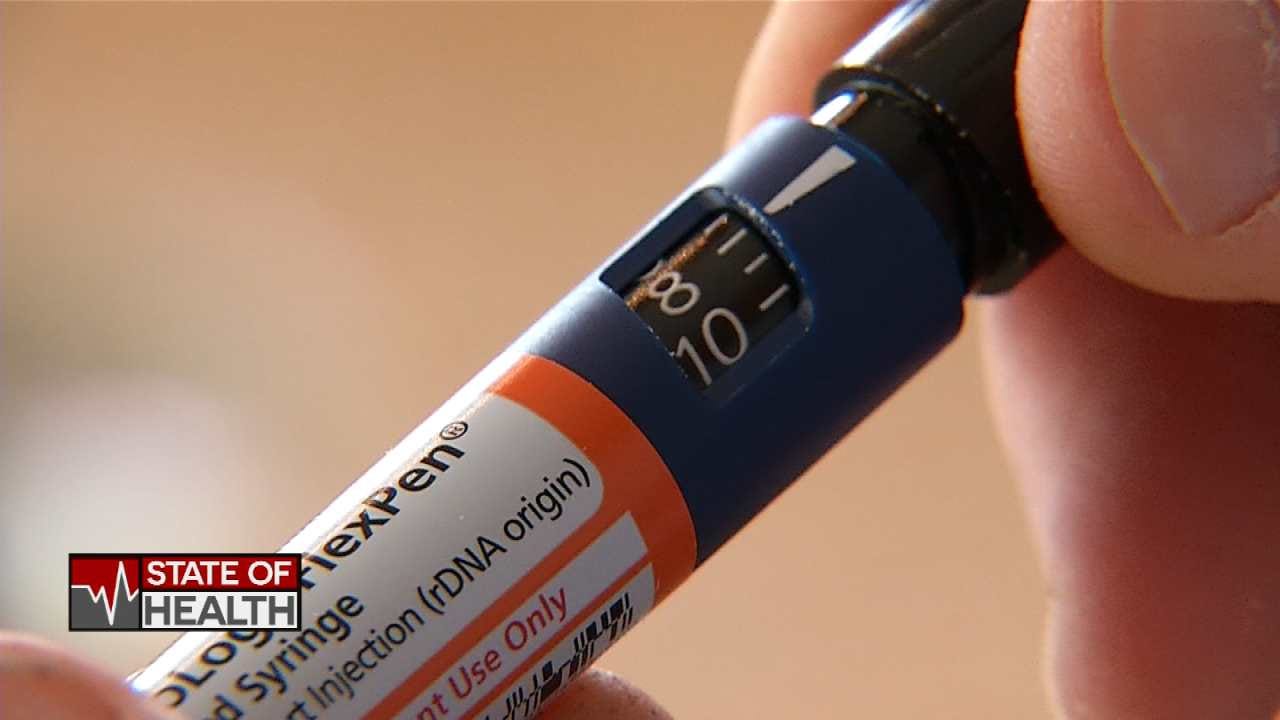Oklahoma Diabetes Rate One Of Highest In Nation
<p>Oklahoma has one of the highest diabetes rates in the nation. In fact, nearly 100,000 Oklahomans have the disease and don't even know it.</p>Friday, September 1st 2017, 7:08 pm
Oklahoma has one of the highest diabetes rates in the nation. In fact, nearly 100,000 Oklahomans have the disease and don't even know it. Through awareness and the Harold Hamm Diabetes Center, doctors hope to bring those numbers down.
Each day 55 people in Oklahoma are diagnosed with Type 2 diabetes - a rate that has quadrupled since 1994.
"Many people are out there with Type 2 diabetes and don't know it," said Dr. Hal Scofield, professor of internal medicine.
Dr. Scofield says while heredity plays a role, a sedentary lifestyle and obesity are the main reasons for the increase.
"You have to eat properly and have a good plan about how you're going to eat and lose some weight," he said.
Bruce Sparling had a family history of diabetes, and even though he managed it for years with diet and exercise, he eventually had to use insulin.
"I have to keep track of my carbohydrate intake and that allows me to determine how much insulin I should take to match what I've eaten," he said. "I've got all my portions."
It's 54 grams of carbohydrates, then he checks the app on his phone to find out how much insulin to take.
"Six goes into 54 nine times, so I'll take 9 units for this meal," said Bruce Sparling, diabetes patient.
"Diabetes is the patients out there at home in their regular life managing it day to day, meal to meal," said Dr. Hal Scofield, Internal Medicine professor.
The Harold Hamm Center in Oklahoma City helps patients manage their diabetes while researchers here work to find a cure.
"We have physicians, diabetes educators, psychologists, physical therapists try to bring everything to the patient in one spot," Dr. Scofield said.
Patients like Morgan Lane. She was 9 years old when she was diagnosed with Type 1 diabetes.
"I was terrified because I didn't know what diabetes was," she said.
"Type 1 diabetes is an emergency; it must be treated with insulin. There are no other treatments at all," said Dr. Jeanie Tryggestad, pediatric endocrinologist.
Type 1 diabetes is most common in children where the body does not produce insulin.
"We haven't quite figured out about what triggers that immune system to malfunction," Dr. Tryggestad said. "Type 1 diabetes right now is a lifelong diagnosis."
Morgan is dependent on insulin and has a pump attached to her body that administers the hormone.
"I think that's what made me mature a lot faster than most kids my age because instead of just running around and doing what I want, I had to make sure that my body felt OK," Morgan said.
"It's never held me back, I never let it."
Morgan is now in high school, managing her diabetes and living a normal life. She also brings awareness to the disease through lectures and the annual Walk for a Cure.
"I just feel happy because I'm using my diabetes to help others," said Morgan Lane, Type 1 diabetes patient.
If left untreated, diabetes can cause serious health problems like blindness, heart attack and stroke. Studies show you can lower your risk of type two diabetes by eating healthy plant fats like nuts, seeds and vegetable oils.
You should also limit how much animal fat and refined carbs you eat.
More Like This
September 1st, 2017
September 29th, 2024
September 17th, 2024
Top Headlines
December 13th, 2024
December 13th, 2024
December 12th, 2024











